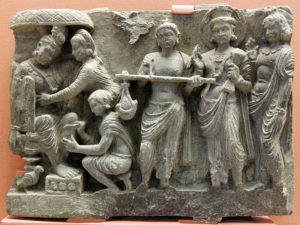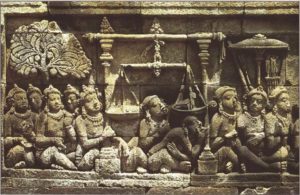From Dr Hamid Hussain
18 February 2019
Few questions came my way. I also keep in touch with our Jewish cousins in Israel and some interesting input came from that side
Hamid
Witches Brew
“Men never do evil so completely and cheerfully as when
they do it from religious conviction.” Blaise Pascal
Thanks to Israeli Prime Minister Bibi Netanyahu, we are more educated and enlightened. Recent conference in Warsaw was an open conference and not a secret meeting. Everyone was euphoric but at the same time somehow uncomfortable and wanted to qualify his statement or simply walk back what they said. Bibi said that ‘in a room of some 60 foreign ministers, representatives of dozens of governments, an Israeli Prime Minister and the foreign ministers of leading Arab countries stood together and spoke with unusual force, clarity and unity against the common threat of the Iranian regime”. His official twitter account noted ‘the Arab states were sitting together with Israel to advance the common interest of war with Iran”. This was later deleted and used the phrase ‘combating Iran’. Bibi used the Hebrew word ‘milchama’ that means war. Same video clip in which Bibi is speaking in Hebrew was also later edited.
Bibi’s office also shared a video with Israeli journalists of a panel that was closed to the media. Foreign Minister of State of Saudi Arabia and Foreign Ministers of United Arab Emirates (UAE) and Bahrain were on the panel and moderator was former Middle East envoy Dennis Ross. The three Arab diplomats poured their hearts to the audience. Here are examples of some of the exact quotes. When asked by Dennis Ross about his view of Israeli strikes on Iranian targets inside Syria, UAE foreign minister Shaikh Abdullah bin Zaid al’Nahayan justified Israeli actions by stating that ‘every nation has the right to defend itself, when it is challenged by another nation’. Bahrain’s foreign minister Khalid bin Ahmad al-Khalifa said, “we grew up talking about the Israel-Palestine issue as the most important issue” but then ‘at a later stage, we saw a bigger challenge, we saw a more toxic one – in fact more toxic one in our history – that came from the Islamic Republic’. Saudi Foreign Minister of State Adel al Jubair blamed Iran for Israel-Palestinian issue stating that ‘Iran’s evil behavior destabilized the region, making Israeli-Palestinian peace impossible to achieve”.
In the opening session, Yemen’s foreign minister Khalid Al Yemeni was sitting next to Bibi. When he came under criticism from Arab public opinion, he said that it was not his fault but fault of those organizing the conference. He then dug a deeper hole by saying that ‘participation in Warsaw was not to discuss Palestine but to rally international community to confront the Iranian expansionism in Yemen”.
I personally believe that a genuine effort of Arab-Israeli entente is essential. More open interaction, discussion at public level to prepare the ground and then a meaningful diplomatic effort to reach normalization. However, they must remember that they are the defeated party and hence will get what a loser gets. Reminds me Henry Kissinger’s words. In the aftermath of 1973 war, when Anwar Sadat started his long list of demands, Kissinger replied. “Mr. President; you have lost the war, but you are asking for the spoils of the victor”. On part of Israel, they are making the same mistake of aligning with tyrants of Muslim countries rather than building bridges with populations. Same euphoria over four decades ago with Shah of Iran and his repressive regime. Ordinary Iranian saw Israel as partner of the oppressor and when the tables were turned, Israel found a new non-Arab foe. The same fretting of Saudi Crown Prince Muhammad Bin Salman not realizing that Saudi throne is on the shakiest sand dunes of its history. One can only guess what kinds of demons will be unleashed when Arabia turns the page of Saudi prefix. Internally, demographically and ideologically, Israel has taken a sharp right turn. In this environment, annexation movement is gaining more strength making a two-state solution almost impossible. On part of Palestinians, they must fight their own battles and before that put their own house in order. It is delusional to think that Arab regimes or Iran who have not given freedom to their own people will somehow take them on the freedom train.
One does not need to be a rocket scientist to figure out the future battlegrounds. Some one sent me a clip of Adel al Jubair’s statement of a long list of charge sheet against Iran during a press conference in Islamabad. I don’t envy Pakistani decision makers. They are stuck in a bind. Now, widening intelligence net of Iran working on Shia and Barelvi adherents and Saudi Arabia doling money to their ownsalafi brands will work on new recruits for coming sectarian wars. Everyone needs to work overtime, reach out to his neighbor to make sure that their next generation is not lost in another fratricidal war.
To be sure, Iranian regime is no boy scout. Clerics usurping power and now dissent is a crime as well as a sin. Revolution’s own ideologue Dr. Ali Shariati had warned against this and in his view ‘of all dictatorships, the dictatorship of clerics was the worse’ and he called it ‘istibdad-e-rouhani’(religiously sanctioned oppression).
In fact, regimes in Saudi Arabia and Iran are mirror image of each other. They are poster child of what exactly is wrong with the political map of Muslim world in general. Ruling under the guise of religion both are deeply sectarian, representing themselves as savior of their respective sects and severely repressing their own people. Mutual hatred is to a level where they are sowing the seeds of disasters all over the globe. They are in competition of who can wreck more havoc in their respective grounds of blood sport in Yemen and Syria. The only hope is the youth of these societies where they stand up and challenge their own fathers refusing to continue the sectarian wars that their forefathers started fourteen hundred years ago.
“I will say this much for the nobility: that tyrannical, murderous, rapacious, and morally rotten as they were, they were deeply and enthusiastically religious”.
Mark Twain, A Connecticut Yankee in King Arthur’s Court
Hamid Hussain
18 February 2019

